Transnational Organizing – Limits, Challenges and Perspectives
A Talk between activists from Precarious Di∫connection in Bologna/Italy – engaged in the platform for a Transnational Social Strike (TSS) – and from no one is illegal in Hanau/Germany – engaged in the transnational network Alarm Phone (AP)
The idea for the following talk and exchange came up, when members of the both mentioned groups met a few times in 2023 and 2024. They realized that they are active in two very different transnational networks, but that they still and again face similar challenges and follow similar approaches.
Both groups have a long tradition in transnational organizing and both were already involved together in the Frassanito network in the period between 2003 and 2009. In these times they promoted struggles and autonomies of migration against the EU border- and racist exploitation regime (*1). Later on, in 2013, both groups were involved in the Blockupy (*2) mobilizations and meetings. Both groups move continuously in the perspectives of global social struggles with a strong connection to movements of migration. Both are convinced in transnational organizing to challenge and to try to overcome the system. To structure the talk and to raise some key-experiences and -expectations, they drafted the following nine questions.
- see the transnational newsletter of Frassanito: „crossing borders“ archived here http://www.noborder.org/crossing_borders/index.php.html)
- https://en.wikipedia.org/wiki/Blockupy_movement#
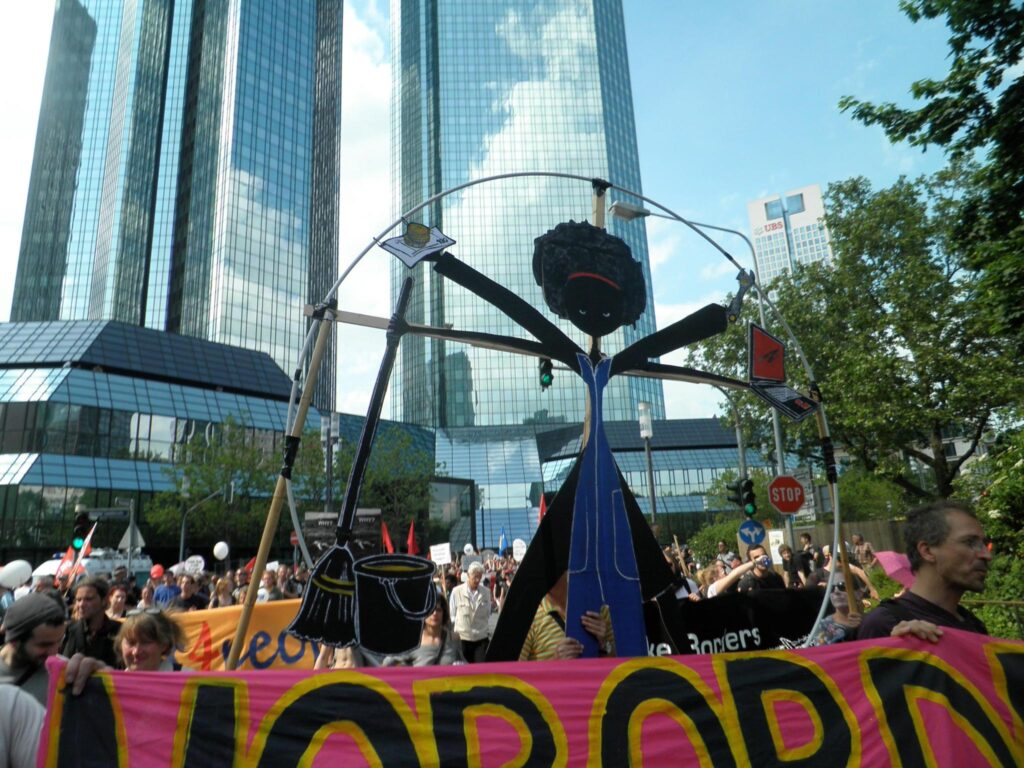
— (1) You move continuously in transnational networks, both – TSS and AP – with a tradition of about 10 years. What is your best-case vision after another 10 years? Where do you want to be in 2034? With TSS in another level of simultaneous strikes? With AP in self-organised ferries against Frontex?
Precarious Di∫connections (P.D.): Ten years are a huge amount of time when considered in political terms. But then the question makes clear that ten years have already passed by since the beginning of the TSS initiative. So, the imagination of the future must confront with the fact that the continuity of political initiative is a continuous challenge. It is hard to formulate an expectation when things around are changing so rapidly. Since the beginning, the aim of the TSS has been that of reading events that were as much important as unconnected – single strikes in the workplaces, like the struggle in the US fast food restaurants for a minimum wage, migrants’ struggles, national protests like the one against the Loi travail in France – as parts of a transnational “strike movement”. This attempt coincided, first, with a redefinition of the strike beyond the traditional idea of an interruption of production, often monopolized by unions. As a social and transnational movement, the strike became for us also the name of a collective capacity of refusing the social and political conditions of exploitation. As a consequence, the strike movement pointed to the necessity of realizing the political infrastructure, that is the organization, which is required to support and foster it beyond specific events. Thus, if we are asked to imagine the future, we do not imagine so much a huge coordinated action, but rather the improvement and consolidation of an organization which allow us both to be ready for tackling rapid changes and turning them into opportunities, and to consolidate the subversive force of social movements which otherwise risk to dissolve when single mobilizations come to an end.
no one is illegal/Hanau (noii): Yes, now in October 2024 Alarm Phone turned ten and it is still an incredible story. One example: When we started in October 2014 we did it mainly in reference to the situation in the central mediterranean. But we could not imagine in which way our hotline could intervene also in the aegean sea as it was dominated – already during this time – by permanent push backs through the Greek Coastguards. But in 2015 the situation completely changed and the movement of migration overrun sea- and land borders, they opened step by step the Balkanroute and it happened absolutely unexpected what we call the summer of migration. Alarm Phone then received – in contact with Syrian, Irakian and Afghan communities on the move – hundreds of calls and could support these autonomies of migration in its best way. What we want to say and what we learned again in 2015: the dynamics of social movements can challenge and change a seemingly „stabile“ repressive situation in a few weeks or months.
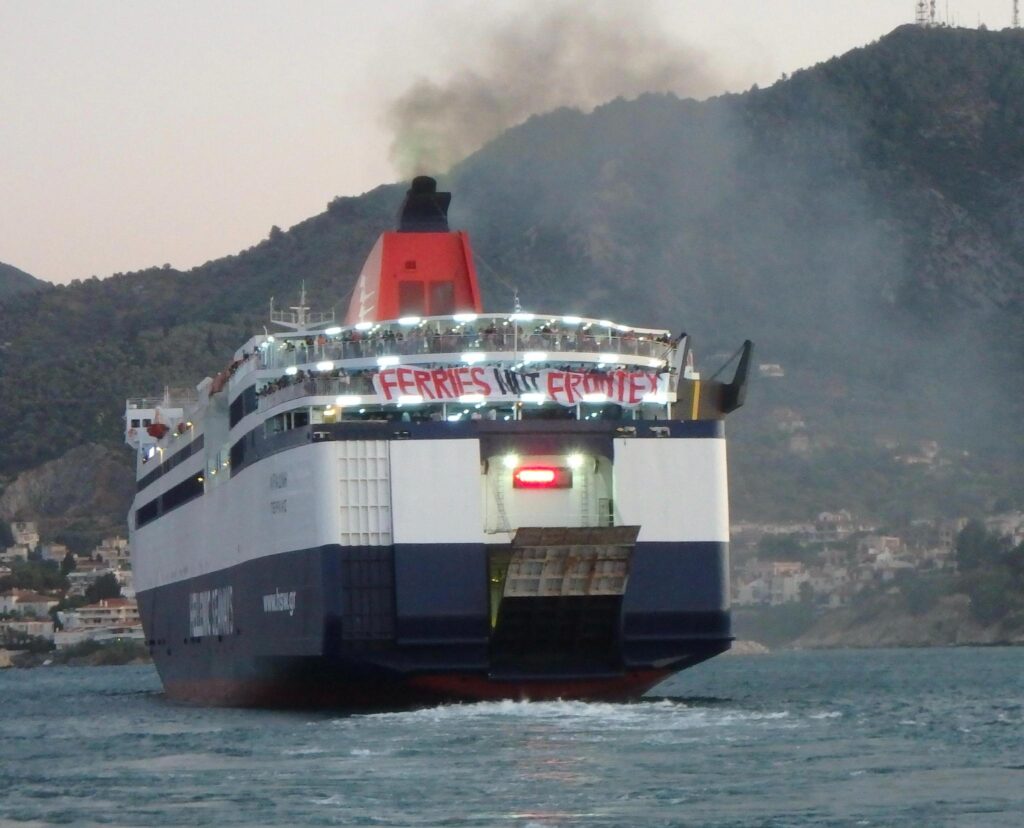
From 2016 on up to today we had to follow a constant backlash with an unbearable „normalization“ of death at sea and a brutalization of the pull- and pushback-regime. But we should never exclude that counter developments happen again. So our dream for 2034 is of course another and more longterm break through and against the EU border- and visa-regime – with „Ferries not Frontex“ as a realized slogan to assert safe passages and to end the death at sea. At the same time we know, that this might only be possible as part of a wider cycle of struggles for global justice.
— (2) Lets come back to the present. How do you analyse – in a nutshell – the multiple crisis and attacks, but also the global struggles? What are the main challenges and what are your focal points of intervention in a short and middle term horizon?
P.D.: Many speak today of multiple crises, «policrisis» is the new word for this. However, this way of thinking tends to reproduce fragmentation. There is one crisis, which is the crisis of neoliberal capitalism. Multiple processes triggered this crisis: from financial ones to the pandemic of Covid-19, but also struggles that had radically put into question the relationships of power upon which the reproduction of capitalist society is based. To make only a couple of examples, what we have called “the migrants’ storm” of 2015, when millions of Syrian and middle-eastern migrants went on strike “with their feet” and simply refused the misery imposed by exploitation and war, shaking political institutions both at a national and at a European level; or the global feminist strike against patriarchal violence, which has fed a multitude of struggles for sexual freedom and liberation from violence and exploitation worldwide, and which has also been able to win something, like free abortion in Argentina and Ireland… These movements have contributed to ignite the crisis of neoliberal capitalism, which is racist and patriarchal in its very constitution. In a way, the war – not only the specific war in Ukraine, or the specific war in Palestine and Lebanon, but the Third World War, that is the worldwide extension of the war logic in all aspects of our life – is a symptom of and a response to this crisis. Attacks on those we stand with are intensified as a consequence of the Third World War: growing of racism, worsening of working and living conditions everywhere, harshening of reactionary policies and political discourses, dismantling of green transition plans. We need to continue intervening against all of this, day by day, to be able to connect struggles of migrants, women, lgbtq+ people and workers across the borders. In order to do this, we also need to confront with the radical political problem of the lack of a transnational movement against the war – which we urgently need. In the medium term, the war is not going to end. This means not only that a strong movement for an immediate ceasefire in Ukraine, Palestine and Lebanon is necessary, but also that we must establish the conditions of what the Permanent Assembly Against the War has called “a transnational politics of peace”, to counteract the capacity of the war to divide and close the spaces of struggle. This is and will be a crucial field of our initiative.
Noii: Struggles and crisis, the question about hen or egg…we agree at least to understand it as an interplay. Looking on migration, we see both in it: the consequences of colonial and capitalist destruction but also as movement of re-appropriation, as globalization from below. Looking to the modern border- and visa-regime: it developed obviously as response and attempt to re-control the autonomies of migration, which were and still are challenging the system of hierarchies and inequality. Death at sea, the brutalization and externalization of borders are re-actions. It is determent policy by all costs to keep the borders as filters and as differential of exploitation. Racism serves as strategy of tension, as crucial element to divide and rule. Neocolonial structures intertwined with racism should keep and justify an obvious system of global injustice. Wars, exploitation and poverty, the global chains of production and reproduction, class, gender or climate change – the movements of flight and migration carry the various crisis in itself and crisscross all conflicts. Thus for us the struggles for freedom of movement gain a strategical importance: by undermining and overrunning the borders itself and demanding equal rights, but also through remittances as redistribution of wealth. Last not least we count on transnational networking, which we build in these struggles between south and north, to contribute with thin threads to create new relationships with the aim to challenge and overcome the system of global apartheid.
— (3) What do you see as main limits for stronger transnational organization? How to deal with the non-simultaneousness of struggles? With the imbalances and the global hierarchies of living and fighting conditions? How to tackle and try to overcome?
P.D.: There are two obstacles, today, on the way for stronger transnational organization: to put local against transnational organization, and to think that there is an opposition between the construction of a shared political discourse and of a political initiative or action. The first limit depends, on the one hand, on the differences in our living, working and fighting conditions which change from one country to another: different levels of precarity, different labour relations and wages differentials, different availability of public welfare provisions and of sexual freedom, different migration laws and so on. On the other hand, this false opposition between local and transnational organization also depends on the habit of organized groups and movements to act on a daily basis, with the aim of perpetuating their own existence as organized groups and movements. The second limit concerns what we mean by political “initiative”. We can of course organize a transnational day of action – as we did, for instance, by supporting and organizing migrant strikes on the first of March, or by launching a “strike the war” campaign on the 1st of May 2022. However, the most important movements of recent years have not been organized “by us”, but they suddenly emerged. The immediate reasons of this emergence – a black man killed by the police in the case of Black Lives Matter; a law banning abortion in the case of the women’s strike in Poland, or a feminicide in the case of the recent strike of nurses and doctors in India – are both contingent and part of structural conditions: racism and patriarchy. A strategical discourse able to focus on these structural conditions is also the first step for becoming part of a real movement able to foster organization by highlighting for instance the relationship between racism, patriarchy, and the contemporary restructuring of neoliberal capitalism in times of war. Without this kind of organization and the consolidated capacity of building connections among different conditions and struggles, the power of these movements wanes, as it is very clear with climate movements and demonstrations: they can gather many people around a specific local or general problem, but they fail in continuity and expansiveness. Therefore, a shared political discourse is necessary for action and for any kind of transnational initiative, to have continuity and capacity of consolidating a political force. This also means that we must confront our differences, which is something we cannot avoid. For instance, there is an ongoing quarrel in Italy concerning the future of a Stellantis firm in Turin. The quarrel is around the production of electric cars, and the bosses are demanding public funding by threatening to outsource production in Poland. No national or local solution is available here. Furthermore, the rapid dismantlement of public welfare is increasingly based on the availability of migrant workers, mainly women, who are forced to accept any wage and working condition because of the blackmail of the residence permit risking otherwise to be deported outside of Europe, in their countries of origin or in a “third” country. No national approach is sufficient in this situation. Today, there isn’t any local situation or struggle which is not crisscrossed by transnational forces, and our aim should be that of turning these material transnational connections into processes of organization, assuming difference as something that we have to take seriously as part of the transnational problem we face.
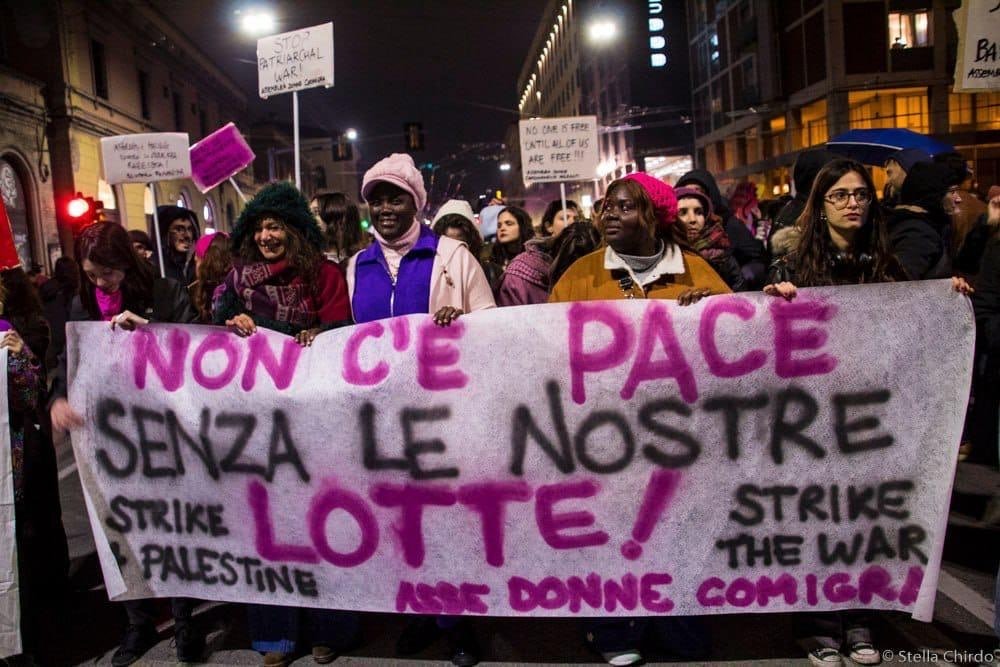
Noii: Yes, in this world of hierarchies and inequalities we face very different conditions and also cycles of resistance and fights vary in times and dynamics. Thus a simplified concept of common or even simultaneous struggles will not work. We saw it already, when we called for common action days with the failed – because very static – expectation, that we can organize step by step a stronger struggle with more and more groups and cities. Instead we think we should count on mutual inspiration and learning. In 1997 we created the germanwide network no one is illegal in reference and reflection to the impressive struggles of Sans Papiers in Paris. We were able to build strong campaigns against illegalisation and against deportations, knowing that we cannot copy the dynamics from France. 20 years later, between 2016 and 2019 we could mobilize with the new alliance of We’ll Come United ten thousands to the streets, in the aftermath of the summer of migration and in opposition to the ongoing backlash. It was a great cycle of three years, but the power and dynamics could not be kept in a more long term perspective, when conditions changed again. As we are convinced in the value of collective memories we could keep available at least basic structures and important experiences, on which we might build on next cycles of struggles.
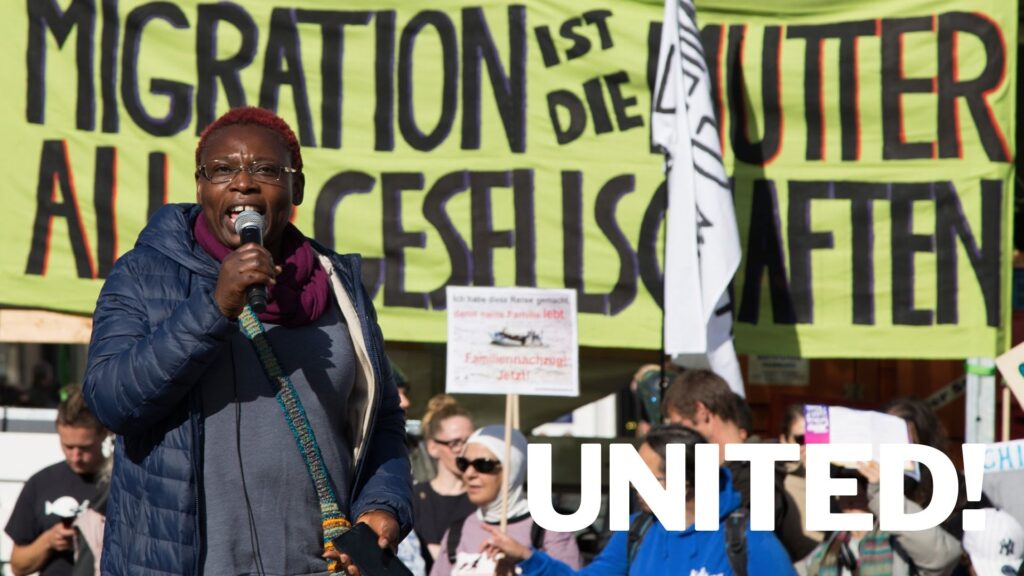
— (4) What is your perception of social struggles and your role as political group and transnational network? Which kind of struggles are most important for you? How do you look on visible and invisible daily practices of resistance?
P.D.: In recent years we have tried to make visible the manifold “social strikes” that occurred and made evident the possibility of organizing beyond and against the worsening material conditions. While many European organized movements and networks targeted “the heart of the beast”, that is, the financial core of the European Union symbolized by the European Central Bank in Frankfurt, we organized the first meeting of the TSS in Poland, where lots of struggles were occurring in the workplaces, along the nodes of the transnational production chains. We have been able to anticipate the strategic importance that Poland and the East are playing today, not so much in geopolitical terms, but for the transnational organization of production and reproduction in times of war. During the Covid-19 emergency, when essential workers, mainly women and migrants, were fighting and striking against the deadly exploitation exacerbated during the pandemic, the TSS launched a network called E.A.S.T. – Essential autonomous struggles transnational – to put those struggles in communication and made them visible. The point is not so much to ask which struggles are “more important”. The point is that some struggles have the potential to become “connectors” of many daily fights and local practices that – albeit important for improving the conditions of life of many subjects – risk otherwise remaining isolated and fragmented. The point is to make this connection a political project. For this reason, migrant collectives and antiracist activists around Europe and beyond organized, within the TSS platform, the Transnational Migrants Coordination (TMC): a space with the aim to connect the different struggles against racism and exploitation that were taking place within Europe, at its borders and beyond them.
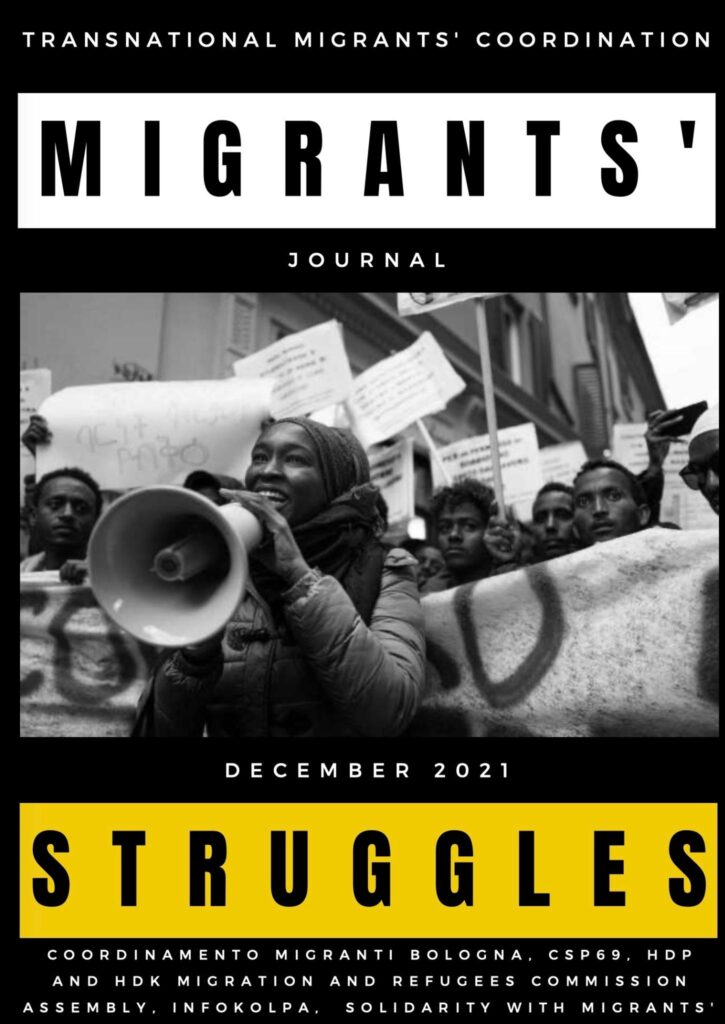
Noii: With Alarm Phone we do refer to the picture of an underground railroad, the hidden abolitionist struggle against slavery. Migration movements are first of all daily invisible social struggles to undermine the border regime. In 2006, when huge migrants demonstrations took place in USA against new repressive laws, some comrades in Los Angeles characterized it as „a sleepy giant, who awaked“. The historical march of hope in September 2015 in Hungary, which then led to some months of freedom of movement in the Balkan corridor, was „only“ the visible peak point of a more hidden struggle in the months before. And coming to last year, 2023, in the central mediterranean: despite and against a post-fascist Meloni government more than 150.000 people on the move made it from Tunisia or Libya to Europe, one of a record number. Similarly in Germany: despite and against the increasing racist discourses and new repressive laws, more than 330.000 new asylum seekers were registered in 2023, also one of the record numbers in the history of Germany. These gaps between official politics and social realities have to be interpreted and recognized as silent but successful autonomies and tenacities of migration movements.
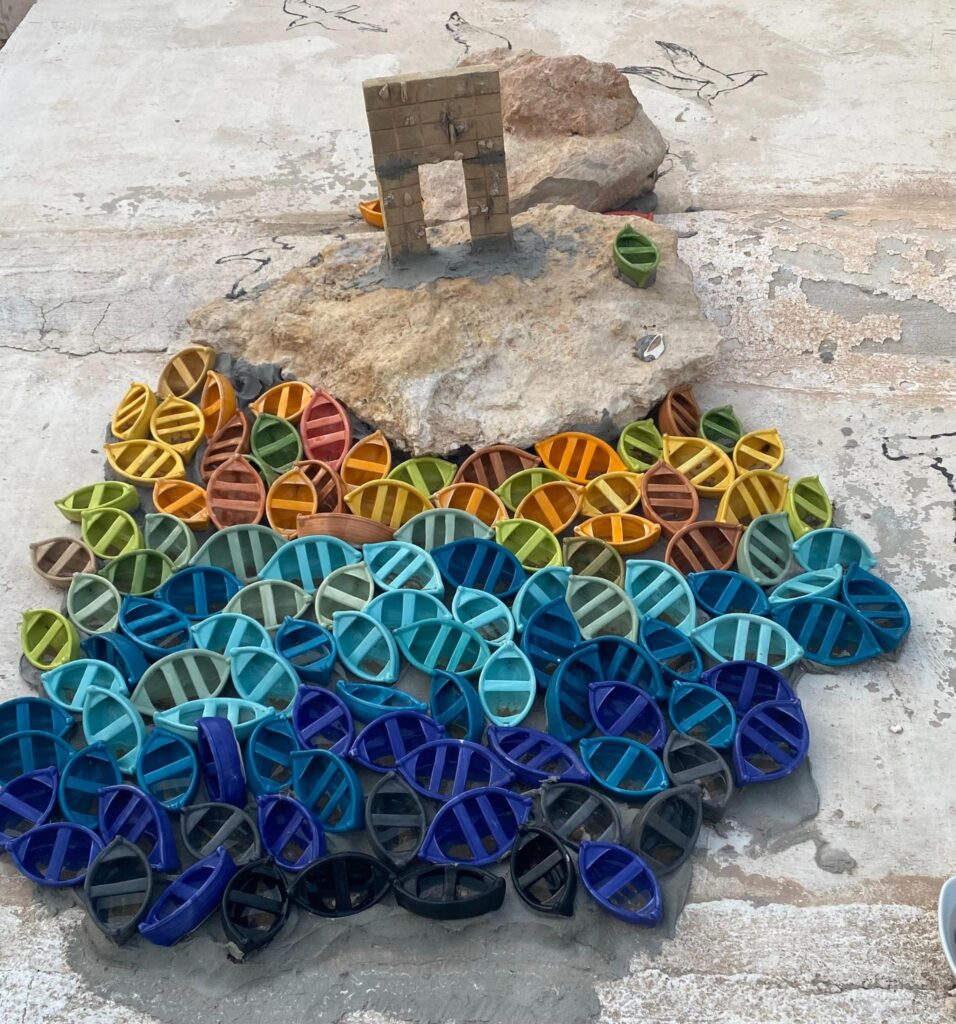
— (5) Do you hope to create own dynamics with mobilizations and events? Or you see yourself more in a „waiting“ position and to get prepared for new cycles of autonomous and spontaneous social struggles and then to try to intervene in it with transnational structures?
P.D.: This is somehow linked to what we already said. However, to get prepared to new cycles of struggles is not a waiting position. It is the active work of anticipation, the establishment of political communication among activists, collectives, unions who are available to make a transnational political infrastructure, starting from the recognition of their insufficiency and of the urgency that something more is needed, than what we can already provide.
Noii: We – lets say as political movement – have all reasons to be humble and to know about our limits. We can amplify and we can strengthen social struggles by supporting interventions and by building – as we name it – infrastructures for freedom of movement. We agree to PD that we can and should try to catalyse connections as kind of ambassadors and to build transnational networks. But we should not be pride ourselves on creating new dynamics and cycles of struggles. Looking to the (big) summer of migration in 2015 or also the (small) summer of migration in 2023 our part of support was not in any way crucial. We could and should accompany as good as possible – what we did in both cases – but we should acknowledge and respect the autonomies. This is valid much more for 2011 and the Arabellion, which a few weeks earlier not anybody in the political sphere could imagine and then – within a few weeks – so much changed and – in reference to migration – also the externalized border regime collapsed. Yes, „waiting position“ sounds much to passive and we would formulate that we try to move and support in contested spaces.
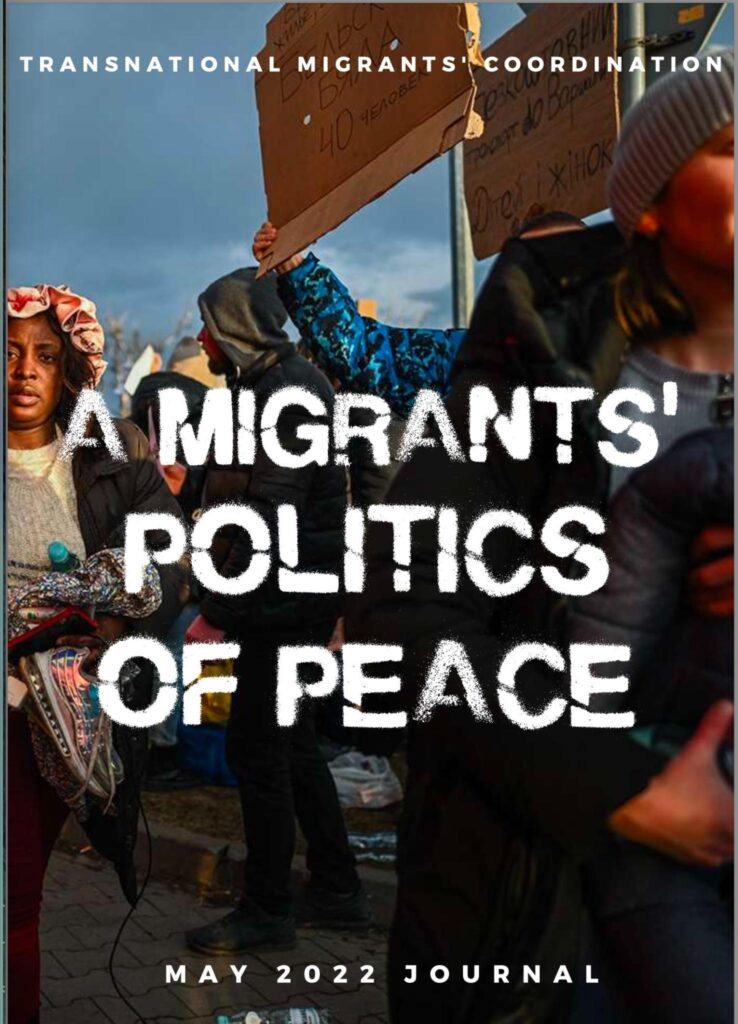
— (6) TSS has more a practice of meetings, decentralized mobilizations and of creating narratives and connecting struggles by statements with a holistic approach. AP`s practice is characterized and interconnected by a common hotline with interventions for people on the move on a daily level, focusing and framing it as infrastructure for freedom of movement. Where do you see respective advantages and limits?
P.D.: AP is a great experience, which is able to challenge the European government of migrations and the border regime. This is of incredible value for hundreds of thousands of migrants who are pursuing their freedom. TSS adopts a somehow different strategy and focuses more on connecting struggles, rather than on a single issue such as migrants’ rescues. In fact, migrants must face multiple obstacles in their journey for freedom. Those who finally succeed to enter Europe must face not only the nightmare of the Dublin regime and the “reception system”, but are forced to turn into a disposable labor-force, which is central for production and reproduction but is also isolated because of its specific legal status. This affects also the capacity of organizing struggles in the work-places – be it the farms and fields, the car industry, logistics or care work. Thus, TSS is not able to look for immediate results, as AP can do, while AP is mainly striving to provide immediate support to migrants and put a spoke in the wheels of the border-regime, without necessarily attempting to pursue a wider project of political connections. What they have in common, for sure, is the recognition of the political centrality of migrants’ freedom, and the need to fight against racism and exploitation.
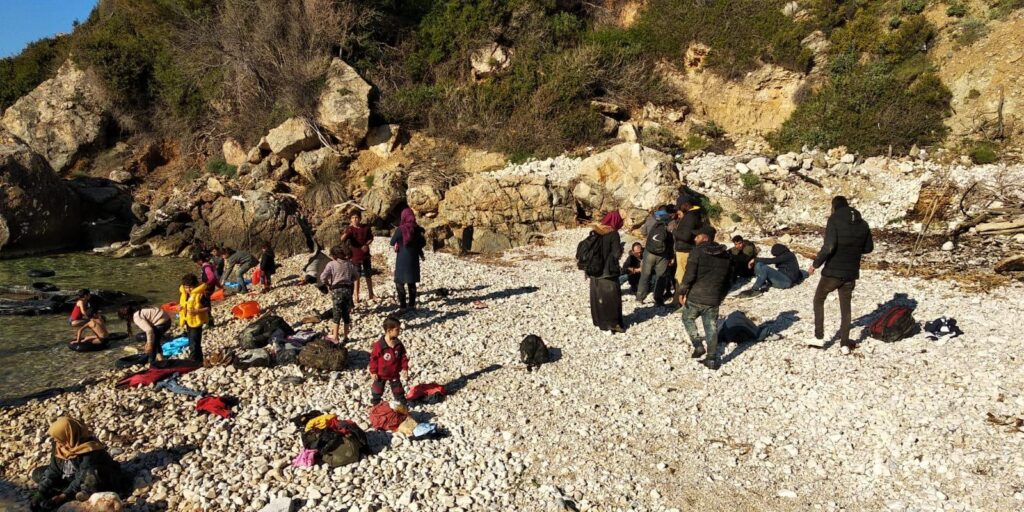
Noii: AP for us is still a small miracle in terms of continuity, responsibility and effectivity in the noborder history. Obviously it was possible – connected through a common hotline with a very clear task to accompany and support people on the move at sea – to create a sustainable network on a very decentralized level but with a common practice. Within last ten years we developed a very complex structure and – most important – we could win the trust of many migrant communities. This kind of interconnection and to be in touch on a daily level with the movements of migration is a big strength. As we have to learn and adopt so may things on our operational levels and as we are involved every day in so many micro-struggles, we risk to neglect the political level. Our common frame of course is noborder and the demand for freedom of movement. But deeper discussions on the narrative in the migration discourse or even to link our struggle with other social fights are often missed out. Its not seldom a capacity problem, but insofar we can learn from TSS. At least AP is very involved in the organization of transborder summer camps, which will take place again in summer 2025 a 3rd time and in which we try to create dedicated spaces for deepening and cross over discussions.
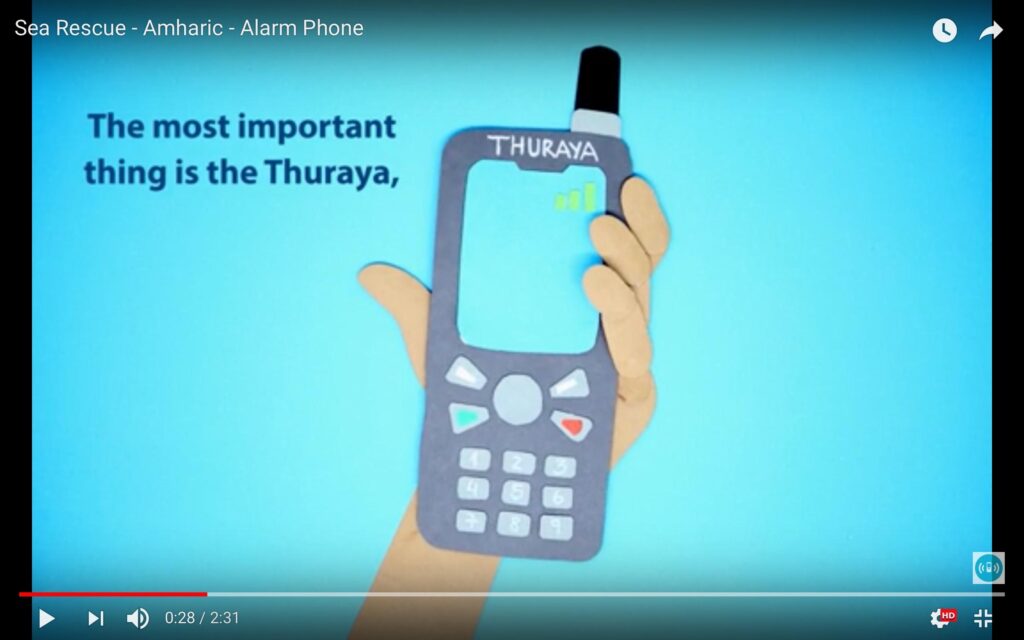
—(7) Lets touch your respective internal structures. How do you share work, how is your networking build up? How do you deal with decision making, with responsibilities and fluctuation? What is done in more centralized, what is done in more decentralized structures? Is it an area of conflict?
P.D.: The TSS has both a coordination group, and specific projects, each of them created under the pressure of events and struggles that made them necessary. I’ve already mentioned EAST, PAAW, and TMC. There is also an initiative called Climate Class Conflict (CCC), which was activated during the wave of climate strikes in order to highlight the necessity of facing the ecological urgency from the point of view of workers, knowing that when, for instance, these workers are employed in the coal mining sector contradictions explode. The coordination group is both the place where these fields of initiative are shared and put in communication and where decisions are taken. The composition of these groups unavoidably varies, because of contingent conditions, peaks of struggles, and the particular situation of local groups or collectives. The composition varies also because the physical meetings that we regularly organize provide new forces which require also a work of synchronization, since not everyone has the same experience in transnational organization. In some moments – like during the pandemic –, due to the impossibility of acting as usual in our local contexts, the transnational space we provided as a consolidated network hosted many new subjects who were eager to overcome the isolation forced by the pandemic. The same has happened after the Russian invasion of Ukraine, when we launched an online assembly which was participated by hundreds of comrades from dozens of countries and started the PAAW. Some have stayed, others haven’t, and this fluctuation is both inevitable and a challenge for the continuity of the political initiative. Concerning conflicts, they’re not so much about the way internal structures work, but about political perspectives and organization. The oppositions between local and transnational, between discourse and action, have triggered difficult and important discussions. What was critical, however, was the war in Palestine. Since the beginning of the war in Ukraine, comrades within the PAAW refused to assume the imposed division of the war fronts, which ask you to side either with Putin’s authoritarian regime or with the EU neoliberal project. Rather, we stressed the importance of building relations against the war and across national borders, among workers, women, lgbtq+ people and migrants. Despite that, a radical disagreement emerged after October 7th 2024, when someone fell into the logic of war, by claiming that providing an unconditional support to people in Palestine and opposing the war was equivalent to consider all people in Israel colonizers, or enemies, and to consider Hamas as the only possible and legitimate resistance. This kind of conflict is the same which invested local movements everywhere. To face it without fear, however, is part of the construction of a shared perspective, which cannot but be conflictual.
Noii: Our hotline is a kind of selforganized call-center and also the coordination of the shift system has to be done with some centralized tools. But taking shifts and to cover 24/7 depends already an the decentralized responsibility of local teams. As we are active in at least four different regions – aegean, central med, western med and channel – we face very different conditions and just to develope the respective alarm plans – standardized procedures, how to act in distress cases – is very complex. We necessarily have to share and decentralize this work. Thus alarm plans, reports, internal and external communication, technical issues, contacts with authorities and relationships with communities are all learning processes with decisions on a decentralized level. Also money wise many decisions are made mainly by the various working groups and we have not even one paid position. Our organigram looks like a kind of labyrinth, but in the same time we feel it is one of our strength, internally in work-sharing, externally not to be so vulnerable for potential repression. A few years ago we discussed the need to organize like a hydra: if authorities would try to cut a head, two others should grow up. And in the meanwhile our network appears very consolidated, so that we can deal with and cope the usual fluctuation processes. Of course people leave or come and go in such a big network with about 300 members and so many tasks. We try to discuss the need of breaks and how to absorb, if comrades or even whole teams leave. Crucial seems to us the stability of respective core groups in the four regions, in which our hotline is active.
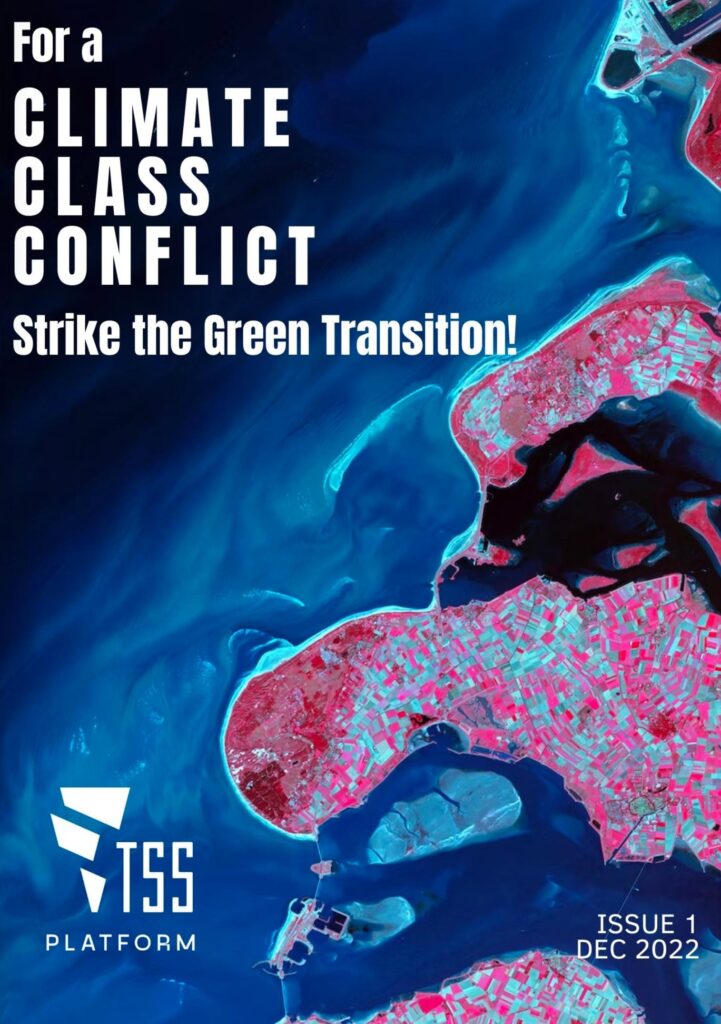
— (8) Both of your networks follow an approach and self-expectation to overcome or undermine global hierarchies and injustices between south and north. What does it mean and how does it work in a reality check? Which steps could be done? What are the main limits and challenges in your structures and in your agendas?
P.D.: We have already mentioned our “turn to East”, which has fostered the organization of meetings not only in Poland, but also in Slovenia, Georgia and Bulgaria. The political meaning of this turn was that of looking at Europe not from the “center” of its government – like Germany or France – but from its margins, both internal and external, which are crucial to understand Europe not only in institutional terms, but looking at the transnational dimension of neoliberal policies, and the way in which differentials in terms of wages, labor relations, or racist and patriarchal hierarchies are produced as part of an overall organization of production and reproduction. We have also established connections with Turkish and Kurdish comrades, because we know the role of Turkey in the European border management, and of the attacks against the Kurdish people in relation to the war, or to social struggles such as the Iranian Women-Life-Freedom movement. The limits are mostly because these connections are often rooted into specific contingencies like, for instance, the withdrawal of Turkey from the Istanbul Convention, which has ignited for some months the initiative of EAST. The challenge is that of consolidating these connections beyond contingencies.
Noii: Our ten years AP assembly took place recently, in the beginning of October 2024, in Dakar. It was practically and symbolically important to go to Senegal, where our most southern team is active. We usually meet with 100-150 people twice a year and most of our southern members cannot get visa to join meetings in the North. Thus one of these two meetings should take pace in the South. Last years we had several general assemblies and even more often working group meetings in Tunisia and Morocco. Some of our members have their own experiences of crossing the sea, in the regional groups comrades living in Tunisia and Morocco are crucial for updates, analysis and sensibilisation. As mentioned we could create good relationships with communities on the move and we have strong ties with our sister projects in or from the the south, for example with Alarm Phone Sahara in Niger, with Boza Fii in Senegal or with Refugees in Libya. Moreover AP is very much engaged in the transnational CommemorAction network, in which we cooperate with many families of drowned and disappeared people in North- and West-Africa. While all these efforts and cooperations influence and change the approach and priorities of AP, we should not pretend to have already an equalized structure. Ressources and subsequent privileges to take more time, to travel and participate in many meetings are clearly in the North. And teams in Europe are too seldom in mixed composition with members with and without migration experience. Thus we think, that finally a certain dominance from the North is still given, although in the mentioned structures the decision making is so decentralized. Its an ongoing and permanent process of reflection and changes in our structures.
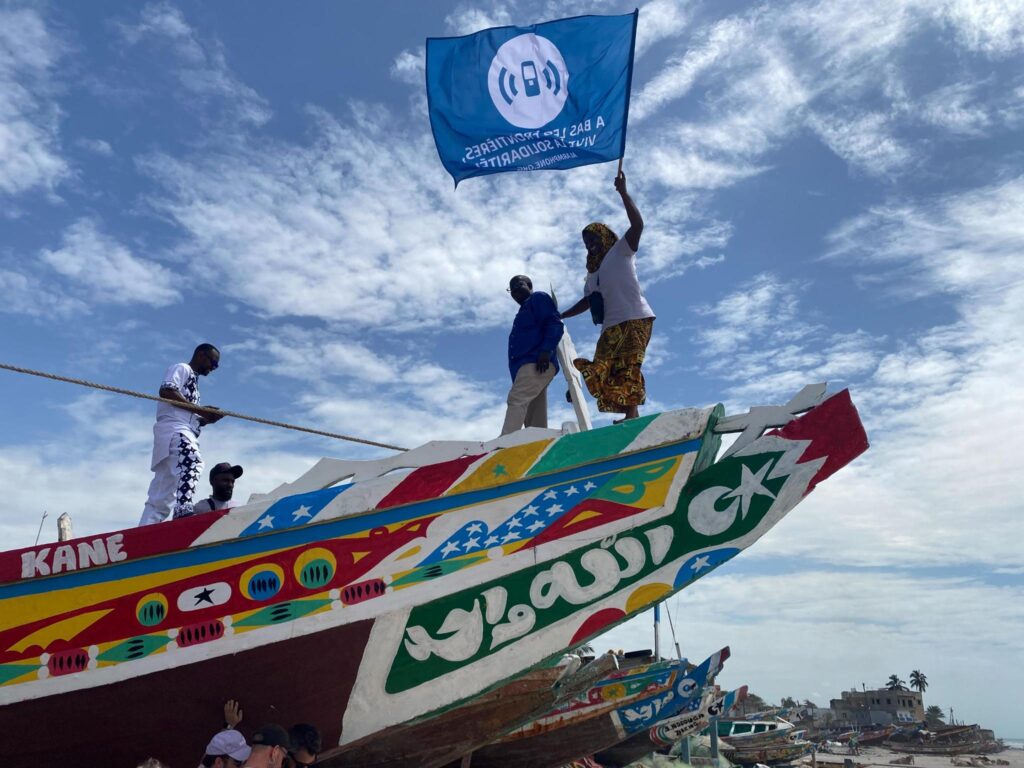
— (9) Interconnecting struggles! TSS reflects this expectation already in its structures, AP tries to create merging spaces for transversal discussions. What is your evaluation so far? Really a mutual strengthening? Or an overloading in complexities and capacities?
P.D.: Both, of course! Sometimes – and some experiences described above are examples of this – we succeeded in creating a space where differences could speak and be part of a shared project and initiative. Local struggles that would have been otherwise isolated became widely known, have been discussed, and became part of a common problem and project. But every success increases complexity and raises new questions and problems. Indeed, the times we face are complex in themselves, the fragmentation of organized movements has never been so radical, also due to the pressure of the war, and we cannot expect easy solutions.
Noii: That remains a difficult question. AP was involved last years in several bigger gatherings, which content-wise went beyond flight and migration. 2019 and 2022 we were part of the transborder summer camps, in autumn 2021 we co-organized the simultaneous convergences in Palermo and Dakar. In all these events a transversal approach was intended and punctually productive workshops for example on the backgrounds of migration, on the situation in various countries of origin or on migration and (migrant) labour went well. But finally these events were singular moments and did not lead to more sustainable structures to interconnect struggles. Theoretically for sure all AP members are convinced in the need of cross over efforts. Practically it often get lost again from our meeting agendas and perhaps comrades feel that discourses remain too abstract if we cannot develope adequate practices. And of course we all struggle with capacity-problems. In our last meeting in Dakar our AP crowd learned much more on realities and social struggles not only in Senegal but in several countries in West-Africa. The challenge is, that it should become more than another interesting moment of exchange. And we see a next chance in the mentioned transborder summer camp in August 2025. We will try to start a process of interconnecting struggles already in advance in the preparation period and then to get it more rooted also in AP. We hope that the Transnational Social Strike network will support and strengthen this ambition.
Precarious Di∫connections (PD) Bologna
Precarious Di∫connections is a space of men and women, precarious and non-precarious, migrants and Italians, who have taken the global and general condition of contemporary labor as the central motif of their political intervention. Our aim is to break the isolation of workers, starting from the differences that divide them. It is to show the global interconnection of the figures of precariousness, to think from there about possibilities of struggle capable of really hitting where it hurts most, i.e. where capital is produced and reproduced.
Contact: info@connessioniprecarie.org
FF: facebook.com/Connessioniprecarie
Ig: instagram.com/connessioniprecarie
TSS-Website: transnational-strike.info
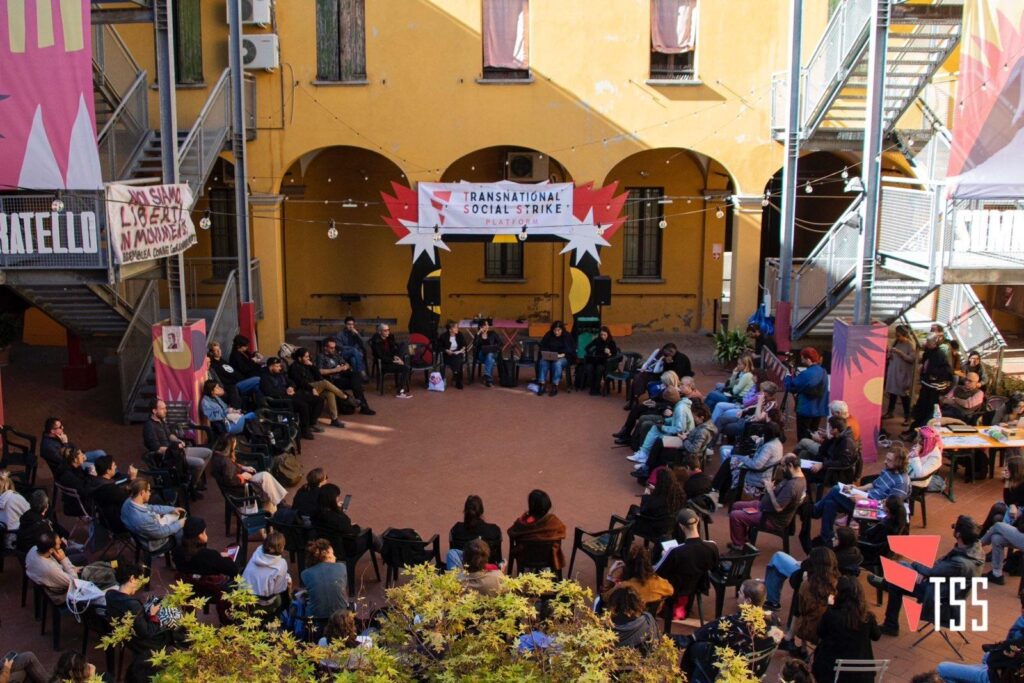
no one is illegal (noii) Hanau
Our group in Hanau is active since the beginning of the 1990ies against deportations, for the right to stay and for freedom of movement. Since this time we offer an independent counseling for refugees and migrants twice a week in a local squat and we were and are involved in multiple antiracist campaigns. We were co-founders for the no one is illegal network in Germany in 1997 and for the noborder network in 1998, co-organizing campaigns against deportation-airlines and noborder camps in border areas all over Europe. Following a transnational approach and convinced in building infrastructures for freedom of movement we are also strongly engaged in the network Welcome to Europe (see https://w2eu.info).
AP-Website: https://alarmphone.org/en/
Contact: kmii-hanau@antira.info
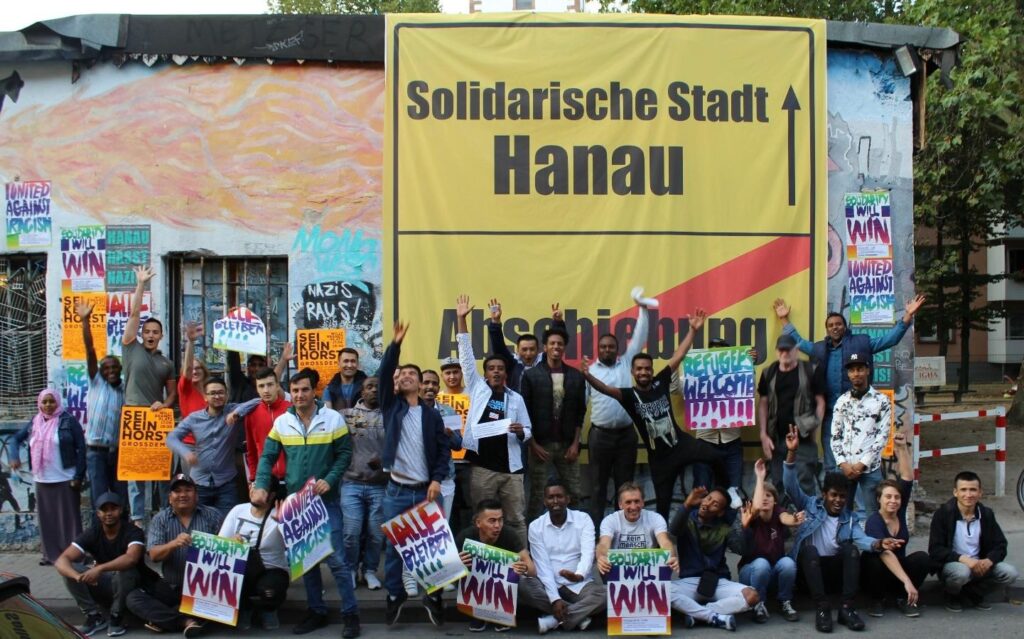
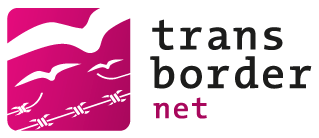
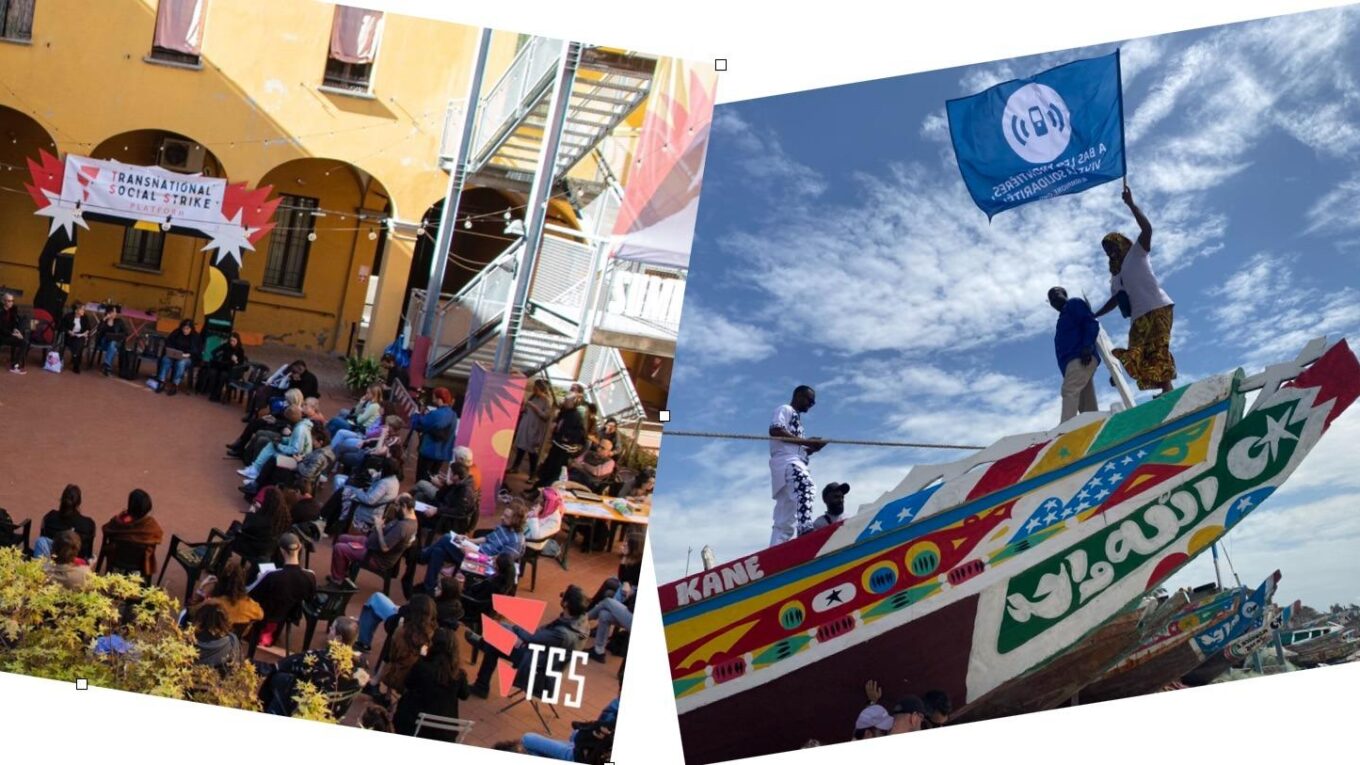
Recent Comments